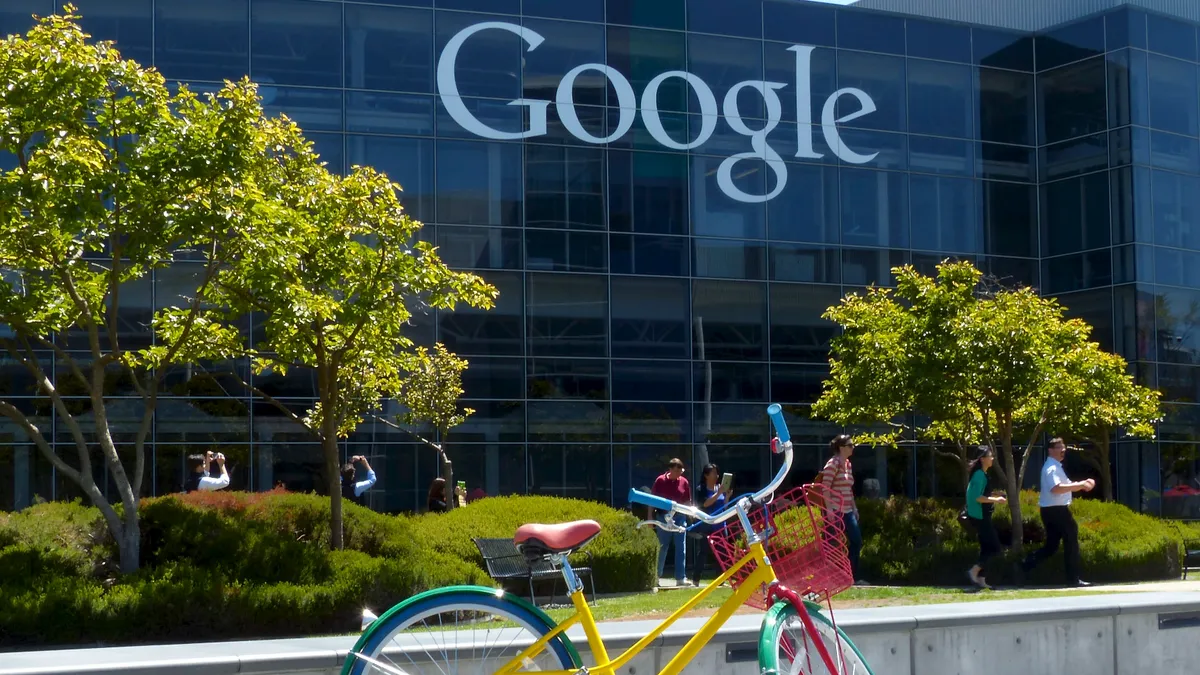Dive Brief:
-
In-person collaboration "within teams and across teams" is key to fostering innovation, Ruth Porat, CFO of Google parent conglomerate Alphabet, told Bloomberg Thursday.
-
Porat, who also leads finance for Alphabet's main Google business, said Google's original model of gathering employees at a central campus will evolve as the pandemic continues.
-
All 120,000 Alphabet employees moved to remote work early on, Porat said, but as companies began reopening, so too did Google offices. Google's Taiwan office, for instance, is now restored to 70% in-person work.
Dive Insight:
"When we started the move to work from home, it seemed daunting," Porat said. "I'm responsible for crisis response. We put together a really strong governance around the move to [working from] home, in sync daily with our regional team and global team. That worked really well."
Last month, Google extended its voluntary telework policy through July 2021 for all North America, Europe, Africa and Middle East-based employees, HR Dive reported.
"We'll be giving each Googler an allowance of $1,000 USD, or the equivalent value in your country, to expense necessary equipment and office furniture," CEO Sundar Pichai said in a May blog post announcing the policy.
Porat and her team, once stay-at-home mandates arrived, were most concerned about their impact on productivity and wellness. But Alphabet's chief medical officer told her people would be more affected by mental health issues than the physical disease itself. "So, we focused there," she said. "Google is really about our people."
Google has received attention over the years for its "fun, quirky, magical campus," Porat said, which is difficult to replicate online. Nonetheless, she said the company has worked to move its connected community to virtual settings.
"We believe when people are together, that's a critical element for collaboration," she said. "It's collaboration within teams and across teams, and it's serendipity. We look forward to having people back in the office."
Porat believes, going forward, the company will get a jolt of productivity if they give employees the option to work from home some days, and come into the office when their teams are in.
"If you save people commuting time, you have better access to talent, because you're giving people what they want in their personal life," Porat said. "What that means for real estate we're still figuring out."
Porat's attitude echoes that of 83% of executives who said in a recent survey they're considering implementing flexible work at a greater scale than prior to the COVID-19 pandemic, HR Dive reported.
Additionally, Google's remote work flexibility puts it ahead of many other large companies who are asking their employees to return to the office, including J.P. Morgan Chase, as Banking Dive reported.
Google didn't have to worry about its surge in online activity, she added, thanks to the investments it made over the years, and testing for what would happen in a crisis scenario.
"You can't solve a risk management issue in the middle of a crisis," she said."You have to solve it ahead of time."












